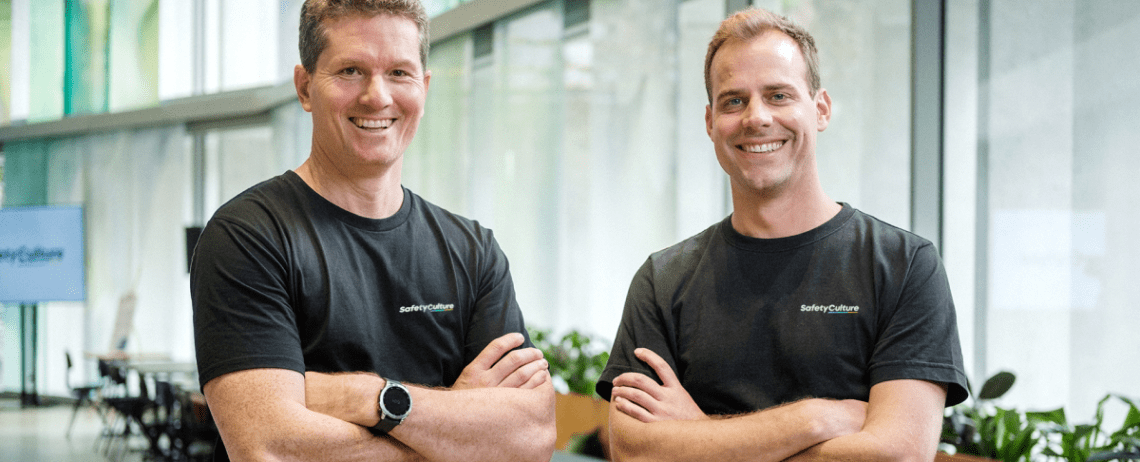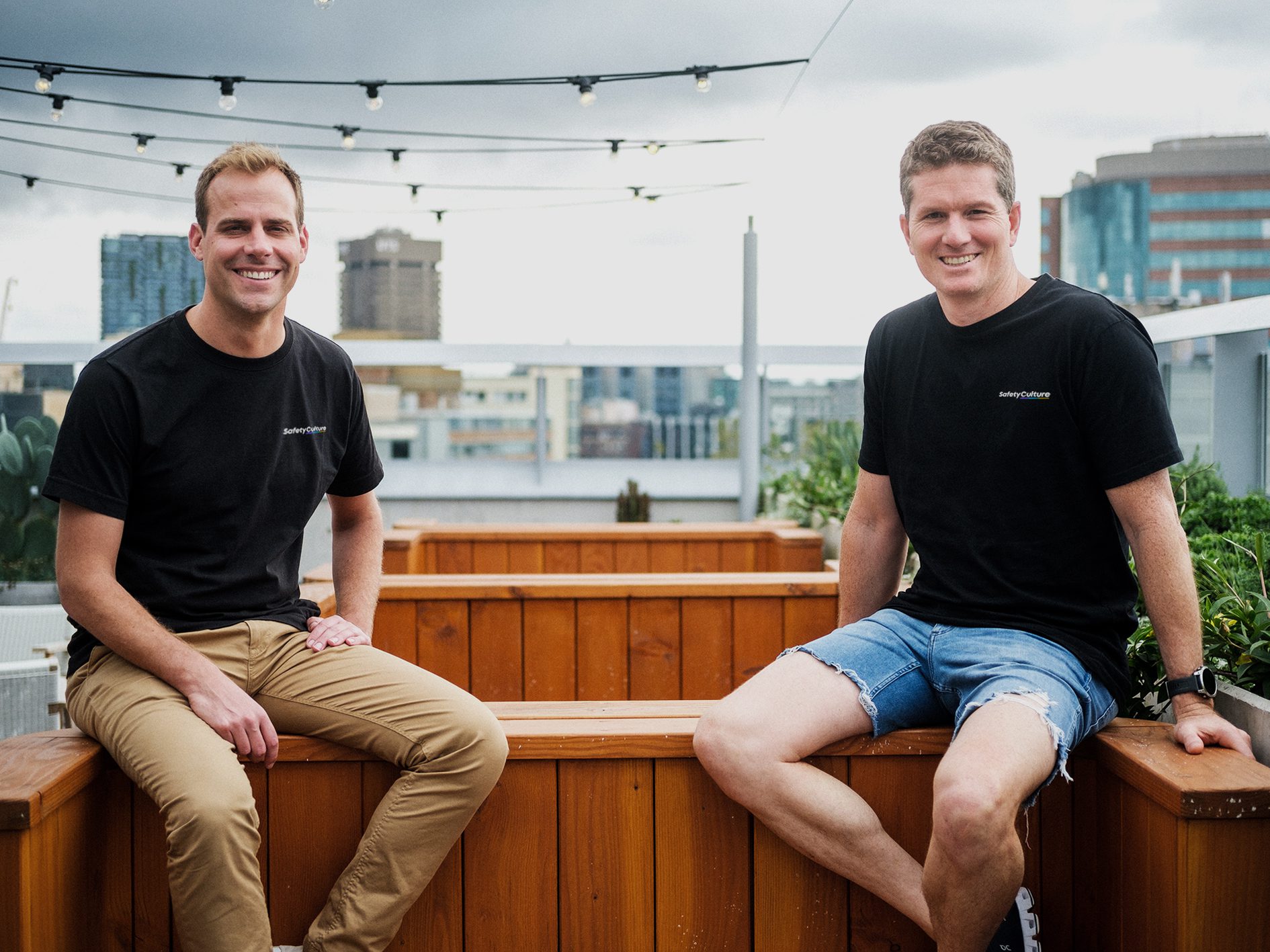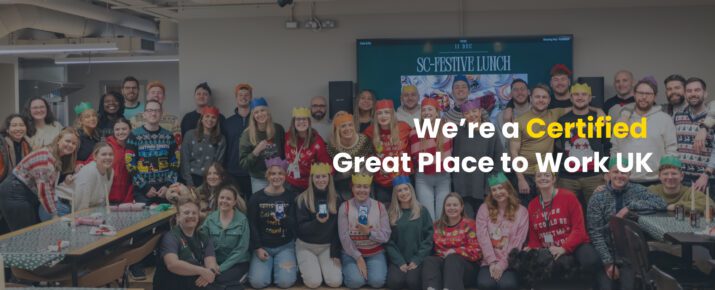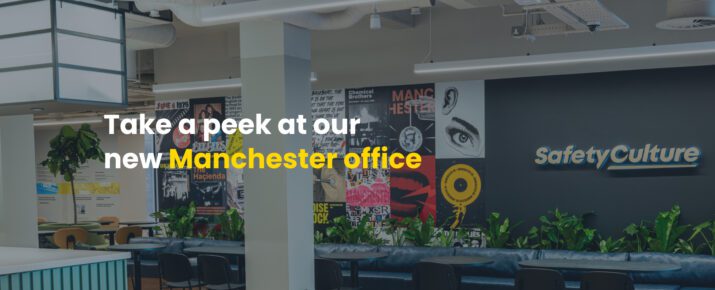Buddying Up: SafetyCulture and SHEQSY join forces to keep more lone workers safe
SafetyCulture News | By | 4 Apr 2022 | 3 minute read


When SafetyCulture first started out, we began a mission to help teams do their best work everyday. As we continue to build out a world-class operations platform, we’ve kept a lookout for other great innovations to help transform the experience of the frontline. And what we have to announce next is definitely one of them.
We’re excited to share that SafetyCulture has acquired SHEQSY, a cloud-based lone worker safety app. With this latest acquisition, we’re hoping to bridge the gap in technology for frontline workers — an essential area that has been historically overlooked and underinvested in.
“Frontline workers make up 80% of our global workforces. They’re our first responders who can capture information that would otherwise be missed: our eyes and ears, at the actionable point of risk. Despite this, they’ve been historically underserved when it comes to technology, especially lone workers. Just 1% of venture capital funding is invested in tooling to support the frontline workforce.
The last two years have shown us the importance of safety across all industries. We’re excited to be helping more businesses to access SHEQSY’s unique, innovative technology so that this essential group of workers feel more protected in their roles day-to-day.”
Luke Anear, SafetyCulture CEO and founder
“Safe” has become one of the most ubiquitous words in the last few years. But we knew its power long before the pandemic — in fact, we’ve been supporting dispersed teams as they operate through uncertainty and risk from day one. As an early investor of SHEQSY, we’ve taken our partnership one step further to acquire the business. Together with founder Hays Bailey, we’ll be able to deliver this cutting-edge lone worker safety solution to an increasingly dispersed and decentralized global workforce.
Wait… what’s SHEQSY?
The name is certainly a conversation starter! SHEQSY comes from the acronym SHEQ – Safety, Health, Environment, Quality; and sometimes SHEQS, with Security.
SHEQSY was founded in 2017 by Hays Bailey. The app’s core function is to give organizations visibility of their employees in the field to ensure their safety when alone. It also grants the workers access to a platform powering real-time alerts to the organization in the case of red flags like missed check-ins, failing to finish a job as planned, and quick duress alarm activation for peace of mind. It all comes together to help workers feel safer when working alone.
Over the course of the pandemic, there was a big spike in demand — lone workers still needed to be out and about providing services, but they were less likely to be reporting back to a central location. Today, SHEQSY’s technology is currently used by thousands of lone workers across Australia, New Zealand, and Canada with customers including Uniting, Anglicare WA, Melbourne Water, and Opteon.
So, what’s next?
Worker safety will remain critical even as we emerge from the pandemic. SHEQSY has a solid customer base in Australia and New Zealand and anyone can get started for free. But more growth is on the horizon — by teaming up, we’ll work to accelerate SHEQSY’s freemium offering and expansion in the U.S. and European markets.
Together, we’ll be able to increase our mandate — solving larger operational challenges and offering solutions that teams rely on day to day.
“Partnering with SafetyCulture gives us the opportunity to accelerate our international expansion and protect millions of lone workers around the globe,” shared Hays.
“We built SHEQSY to give these individuals access to a mobile-first safety solution, making clunky devices a thing of the past. The features we built into the mobile app are currently the best solution for lone workers available and by teaming up with SafetyCulture we can continue to build on that strong foundation. The pandemic has reaffirmed the importance of our mission more than ever as we continue to help businesses ensure the safety of employees working alone in the community.”
Important Notice
The information contained in this article is general in nature and you should consider whether the information is appropriate to your specific needs. Legal and other matters referred to in this article are based on our interpretation of laws existing at the time and should not be relied on in place of professional advice. We are not responsible for the content of any site owned by a third party that may be linked to this article. SafetyCulture disclaims all liability (except for any liability which by law cannot be excluded) for any error, inaccuracy, or omission from the information contained in this article, any site linked to this article, and any loss or damage suffered by any person directly or indirectly through relying on this information.





